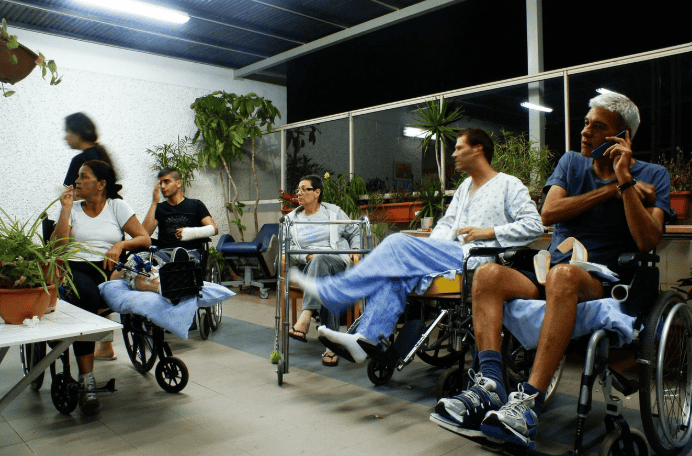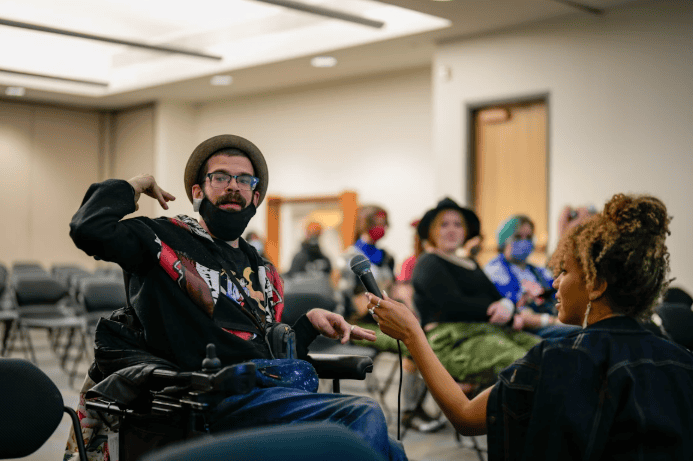Supporting mental health for people with disabilities plays a critical role in their well-being. Nurturing their emotional and psychological health deserves special attention. Disabilities, whether physical, cognitive, sensory, or developmental, can bring unique challenges that shape daily experiences, social interactions, and self-identity.
These factors may increase the risk of anxiety, depression, and stress if the right support systems aren’t in place. Understanding how to foster a positive mental environment can empower individuals with disabilities to thrive and lead fulfilling lives.
Understanding and Accessing Support Services
Support services are often the backbone of mental wellness for people with disabilities. These services can include therapy programs, disability-inclusive support groups, personal care assistance, and community resources designed to make everyday life more manageable.
Having access to thoughtful support helps individuals navigate emotional hurdles and encourages independence, and improves quality of life.
Individuals and caregivers need to explore available options and learn how different services can meet diverse needs. Whether your click here gave you information or you still need to do more research, taking time to understand disability-focused support services can ease stress, reduce isolation, and build confidence.
Programs ranging from counseling and behavioral therapy to mobility assistance and life-skills training can make a meaningful difference.
Community disability centers, nonprofit organizations, and government programs often provide resources that people may not know exist. It helps to regularly check local directories, health service providers, and disability advocacy groups to stay aware of new tools and opportunities.

Encouraging Emotional Expression and Connection
Loneliness and social isolation can significantly impact mental health. Encouraging healthy communication and emotional expression is vital in helping individuals with disabilities feel seen and heard.
Caregivers, friends, and family members can strengthen emotional well-being by offering a safe, judgment-free space for conversations. Listening with empathy, without rushing to offer solutions, helps build trust and emotional strength.
Building community connections plays a powerful role. Participating in social activities, inclusive programs, or hobby-based clubs gives people with disabilities opportunities to make friends, develop confidence, and escape from isolation. For those who prefer online environments, virtual support groups and digital meet-ups can offer camaraderie and shared understanding.
Promoting Routine, Structure, and Independence
A structured routine can provide comfort and reduce stress for individuals who depend on predictability to feel secure. Planning regular schedules around meals, hobbies, medical care, and rest encourages balance.
Routines should support independence wherever possible, even small decisions, like choosing outfits or planning meals, can strengthen confidence and self-esteem.
Developing life skills at a comfortable pace can enhance independence. Whether it’s learning to manage finances, practicing self-advocacy, or handling transportation, gradual skill-building reinforces autonomy while ensuring mental well-being remains a priority.
Encouraging Physical Wellness and Adaptive Activities
Physical and mental health are deeply connected. Exercise, adapted to each person’s abilities, can lift mood, manage stress, and boost self-confidence. Activities like swimming, stretching, adaptive yoga, and chair-based exercises help enhance mobility while promoting emotional balance.
Engaging in enjoyable hobbies, from painting to gardening to music therapy, stimulates positive emotions and reduces anxiety. Celebrating small achievements helps build pride and fosters motivation.
Educating Caregivers and Expanding Awareness
Family members, caregivers, and support staff play a vital role in mental health. Understanding disability-related emotional challenges and learning mental-health-first-aid strategies equips caregivers to provide better support.
Workshops, online courses, and community seminars can help deepen awareness and develop practical techniques for assisting loved ones in times of stress or emotional change.
Education empowers caregivers to recognize signs of burnout in themselves and the individuals they support. Addressing stress early helps prevent emotional decline and maintains a nurturing environment.
Advocating for Accessibility and Inclusion
Supporting mental health for people with disabilities thrives where accessibility exists. Environments that embrace disability inclusion, in workplaces, schools, healthcare systems, and communities, help individuals feel valued and respected.
Advocating for accessible mental health programs, barrier-free communication options, and equal opportunities promotes dignity and belonging.
Self-advocacy plays a key part. Encouraging individuals with disabilities to voice their needs and preferences strengthens confidence and ensures their mental health remains centered in decision-making.

Prioritizing a Person-Centered Approach
Supporting mental health for people with disabilities means recognizing every person’s individuality. Needs vary widely, and no single approach fits all. Taking a person-centered approach, listening, adapting, and empowering, helps build a strong foundation for emotional wellness.
With compassionate care, supportive services, and meaningful connections, individuals with disabilities can lead emotionally rich, empowered lives. This begins with a collaborative assessment where the individual, not their diagnosis, is the expert on their own life, goals, and preferences for support.
Communication must be adapted to the person’s specific needs, which may involve using tools like visual aids, assistive technology, or working closely with a trusted advocate to ensure their voice is heard.
Support plans are then co-designed as dynamic, living documents that evolve with the person’s changing aspirations, rather than being static, prescriptive treatment regimens.


